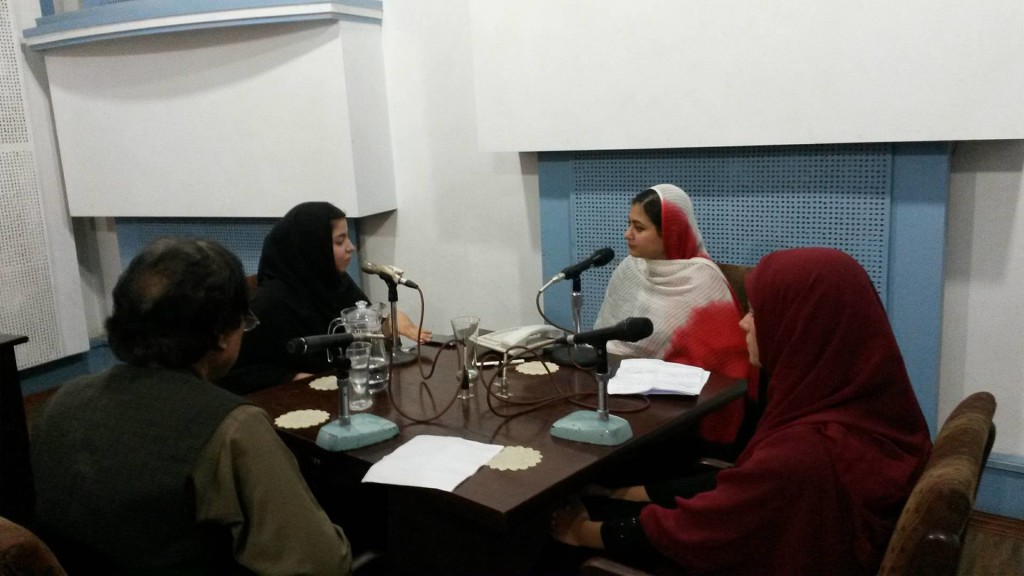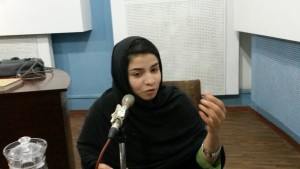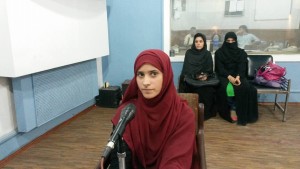October 28, 2015, Peshawar: The Center for Research and Security Studies’ (CRSS) flagship radio program Sabawoon’s latest episode was about the lack of women in the workforce and the hurdles they face in their professional lives. The program highlighted topics such as cultural barriers for women, the professional fields that women are engaged in the most, female education, and the lack of family support for female employment. Issues like harassment in offices and outdoors, exploitation of women in professional life, and the misuse of religion due to lack of awareness was also a part of the discussion.
The program aired on Wednesday under the theme of “Jwandey Jazbey” (alive spirits). Two guests took part in this program, Ms. Nihal Tabassum, a lawyer and social activist, and Ms. Haseena Zeb, a student of Engineering from Abasyn University, Peshawar.
The program’s central theme was highlighted in a report from Peshawar, which drew attention to the views of a doctor, journalist and a student about the lack of government support on women’s employment. Norms and traditions that create hurdles for women in this sector were also shared in this report.
Six callers participated in the live program. They urged the public to encourage women for employment and demanded that the government should facilitate women with transportation and day care facilities.
Danish Bibi, a caller on the show, said, “The Khyber Pukhtunkhwa (KP) government should focus on providing special opportunities and allowance so more women can help serve the nation.” Another caller, Muhamad Sadiq, said, “The Islamic scholars should show the real face of Islam that has always shown the importance of women.” Wahid Gul, a third caller, said, “Parents should encourage their daughters to take part in their profession of interest and should discourage them from sitting idle at home.”
Ms. Nihal Tabbasum, Lawyer and Social Activist
“We must fight for our rights. In this male dominated society, women are discouraged to work outside their homes. In KP, approximately 70 percent of the girls graduate from medical colleges, but only a few of them get to join the profession due to the lack of support from their family, society and the government.”
Haseena Zeb, Engineering Student, Abasyn University Peshawar
“The lack of capacity building and stress management training is one of the major reasons that discourage us to work outside our homes. Hurdles such as early and arranged marriages, lack of family and community support are some of the other causes.”




